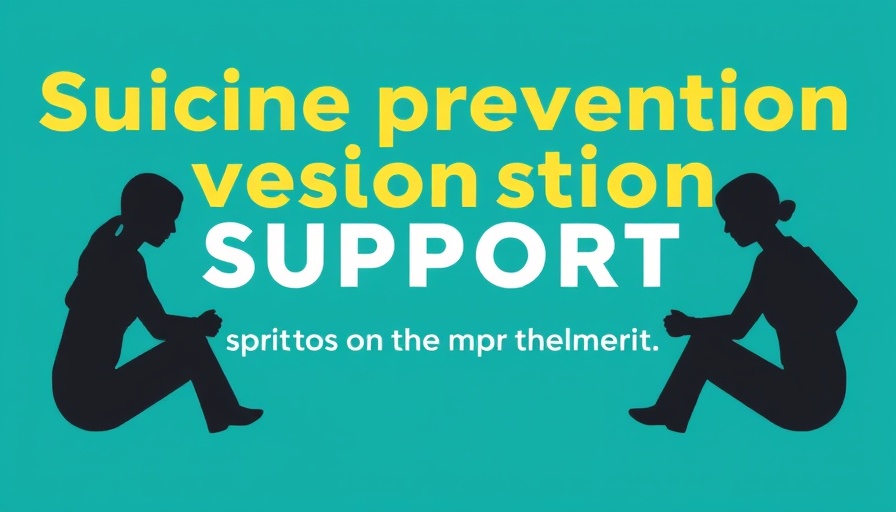
Understanding the Importance of Suicide Prevention
Every year, suicide claims thousands of lives, making it a pressing public health challenge. In recent discussions about mental health, the significance of suicide prevention has been brought to the forefront, particularly on college campuses. During the month of September, a series of events aim to raise awareness, provide support, and create safe spaces for dialogue around this critical issue. Colleges, recognizing the vulnerability of their student populations, are actively engaging in these initiatives to promote mental health and wellness.
Upcoming Events That Make a Difference
This September, various organizations and health services are collaborating to host events specifically focused on suicide prevention. These include workshops designed to equip students with coping strategies and resources to support their peers. Activities might also involve mental health screenings, informational booths, and guest speakers who can share powerful stories of resilience and hope. Such interactions provide students not only with information but also with a sense of community, fostering connections that can be crucial for those struggling with mental health challenges.
Creating a Supportive Campus Environment
The impact of collective effort on campuses cannot be underestimated. Engaging faculty, staff, and students in discussions around mental health can significantly reduce stigma and encourage individuals to seek help without fear of judgment. Events can also pave the way for creating support networks among students. By normalizing conversations about mental health, these initiatives promote a culture where seeking help is seen as a strength rather than a weakness.
What Can You Do?
For those who want to get involved, there are numerous ways to contribute to suicide prevention efforts. Participating in campus events is one straightforward approach. Additionally, students can volunteer for organizations focused on mental health or become trained peer supporters. Even simple actions can make a significant difference—checking in on friends, initiating conversations about feelings, or simply being there for someone can have a lasting impact.
Addressing Misconceptions About Mental Health
Despite progress in mental health awareness, misconceptions still exist. Many people wrongly believe that individuals who contemplate suicide want to die; in reality, they might be in immense pain, hoping for relief rather than a fatal outcome. Education is vital in dispelling these myths. Engaging in open conversations during September events can help shed light on the nuances of mental health, creating a more informed and compassionate community.
The Ripple Effect of Awareness and Action
Bringing attention to suicide prevention doesn't just affect the individuals directly involved. Raising awareness can create a ripple effect, encouraging discussions that extend beyond campus and into homes, workplaces, and society at large. By actively participating in these events, you help nurture a more understanding environment that can potentially save lives.
Final Thoughts: Take a Stand
As September unfolds, we are reminded of the importance of mental health and the tragic implications of neglecting it. Whether through participation in campus events or simply by sharing resources with those around you, everyone can play a role in suicide prevention. Your actions might instigate a conversation that saves a life. It's crucial to remember that no one has to navigate mental health struggles alone—support is available, and together, we can build a community that prioritizes wellness.
 Add Row
Add Row  Add
Add 



Write A Comment